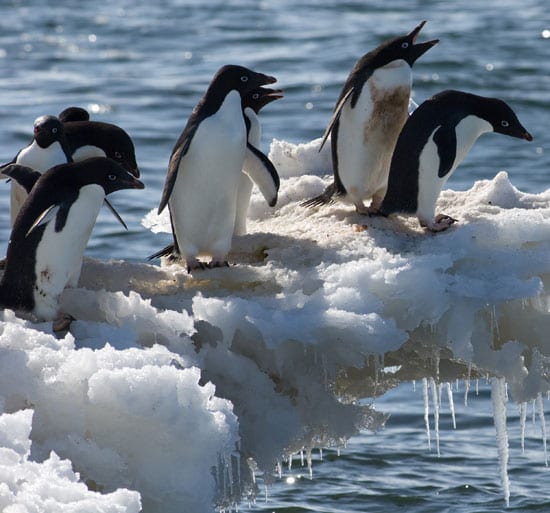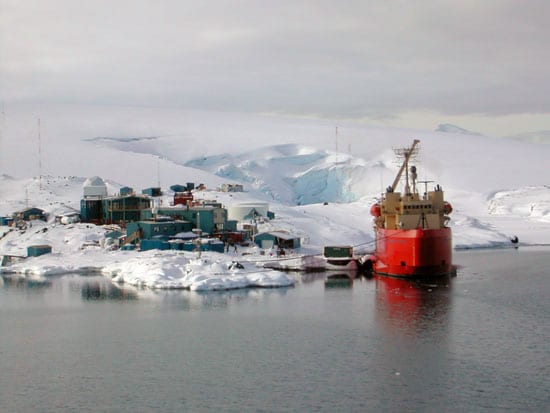Warming Climate Impacts Base of Food Web in Western Antarctic Peninsula
March 12, 2009
A paper published this week in Science shows for the first time that the warming climate is changing the numbers and composition of phytoplankton—the base of the food web—along the western shelf of the Antarctic Peninsula.
Summertime levels of phytoplankton have decreased by 12 percent over the past 30 years off the Western Antarctic Peninsula, reports the team, which was led by Martin Montes-Hugo of the Institute of Marine and Coastal Sciences at Rutgers University.
The climate of the western shelf of the Antarctic Peninsula is undergoing rapid physical climate change. Over the past half-century, winter air temperatures warmed at almost five times the global average rate—the most rapid warming of the past 500 years. In addition, seasonal sea ice in this region now arrives later in autumn and leaves earlier in spring, a trend that has displaced populations of sea ice-dependent animals.
“With the striking climate change we’ve observed in Antarctica, scientists have known that higher organisms like penguins are being affected,” said Scott Doney, a marine geochemist at the Woods Hole Oceanographic Institution (WHOI) who assisted Montes-Hugo with the numerical analysis of the satellite and field data. “But this is the first evidence we’ve seen that those changes are having an impact on the base of the food web.”
For this study, Montes-Hugo analyzed 30 years of satellite and field data on ocean color, temperature, sea ice, cloud cover, and wind speed to determine the changes in phytoplankton along the WAP.
“This important scientific discovery is a result of the synergy between satellite data and time series data,” Doney added. “Being able to tie these data together was a critical new step.”
This paper stems from work done as part of the National Science Foundation Office of Polar Program’s Long-Term Ecological Research (LTER) project at Palmer Station, Antarctica. Besides Montes-Hugo and Doney, the paper’s co-authors are Hugh Ducklow, co-director of the Ecosystems Center at the Marine Biological Laboratory (MBL), Oscar Schofield, Rutgers University’s Institute of Marine and Coastal Sciences; William Fraser, Polar Oceans Research Group, Sheridan, Montana; Douglas Martinson, Columbia University’s Lamont-Doherty Earth Observatory; and Sharon E. Stammerjohn, University of California at Santa Cruz.
The Woods Hole Oceanographic Institution is a private, independent organization in Falmouth, Mass., dedicated to marine research, engineering, and higher education. Established in 1930 on a recommendation from the National Academy of Sciences, its primary mission is to understand the oceans and their interaction with the Earth as a whole, and to communicate a basic understanding of the oceans’ role in the changing global environment.
##
Media contacts: Stephanie Murphy, Woods Hole Oceanographic Institution, 508-289-3340, media@whoi.edu
Diana Kenney, Marine Biological Laboratory, 508-289-7139; dkenney@mbl.edu
Ken Branson, Rutgers University, 732-932-7084, x633; kbranson@ur.rutgers.edu


